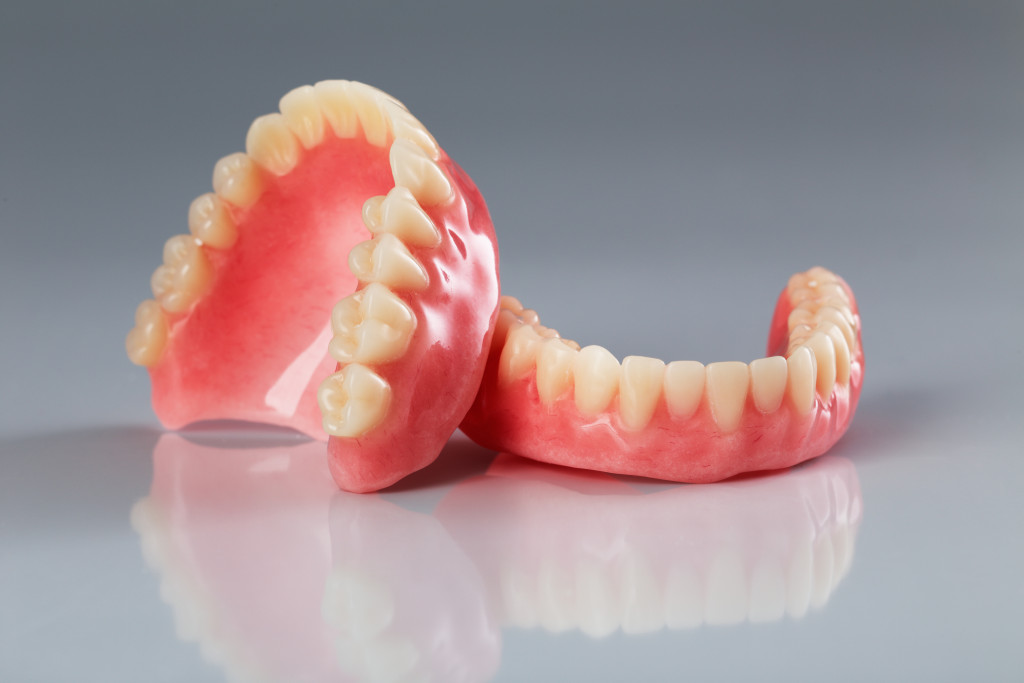Regarding your overall health, it is essential to remember the importance of oral hygiene and its effect on other parts of your body. Your mouth is a reflection of what’s going on in the rest of your body and can tell you valuable information about your overall general health. From diabetes to cancer, many things can be detected by closely monitoring your oral health. Here are four essential things that your dental hygiene can tell about your general health.
1. Diabetes
One significant indicator for diabetes — both type 1 and type 2 — is the presence of gum diseases such as gingivitis or periodontitis. People with diabetes often have elevated glucose levels in their saliva, which can cause bacteria to grow more quickly and lead to gum infections. This is why it’s essential to check your blood sugar levels and brush and floss regularly if you have diabetes or are at risk of developing it.
If you have diabetes, monitoring your dental health is essential. This means scheduling regular check-ups with your dentist and having them evaluate any changes in your mouth or gums that might be indicative of other problems. Additionally, individuals with diabetes should pay attention to what they eat and drink, brush their teeth twice a day, and floss once daily.
It is also important to schedule regular teeth cleanings with your dentist since poor oral hygiene can reduce the effectiveness of blood glucose control. Ask about available gum disease treatments during dental check-ups, such as scaling and root planing or antibiotics. In addition, if you have diabetes, it’s a good idea to discuss any medications you may be taking, as some can affect your oral health.
2. Eating Disorders
Eating disorders such as anorexia and bulimia can also be detected through the signs in your mouth. Teeth erosion caused by frequent vomiting, for instance, is a common sign of bulimia. Additionally, suppose someone with an eating disorder has difficulty maintaining good oral hygiene due to malnutrition or dehydration that often comes with these conditions. In that case, this, too, may be noticeable through their teeth.
Other physical signs of an eating disorder can also be found in the mouth. Dryness, cracking, and soreness of the lips can indicate inadequate intake of essential vitamins and minerals, which is one of the consequences of anorexia nervosa. Those affected may also have swollen salivary glands due to frequent vomiting or insufficient hydration. In advanced stages, anemia can result from malnourishment, which can also be detected in the mouth through pale and brittle gums.
It is essential to address any concerning signs or symptoms of eating disorders as soon as possible. Early detection and intervention may help prevent long-term damage to your oral health and overall well-being. If you think you or someone you know may have an eating disorder, speak to your dentist immediately. Your dentist can provide advice and refer you to specialist treatment if needed.
3. Heart Disease

Periodontal disease has been linked to heart disease, and people with poor oral hygiene are more likely to suffer from a heart attack or stroke. This is because the bacteria that cause gum disease can enter the bloodstream and accumulate in blood vessels, resulting in inflammation of the blood vessels which can increase your risk of cardiovascular disease.
In addition to periodontal disease, other risk factors for heart disease include smoking, high blood pressure, diabetes, and obesity. These conditions can all contribute to narrowing the arteries (atherosclerosis), making it more likely that pieces of fatty material in the artery walls will break off and block your arteries. This can lead to a heart attack or stroke.
Taking care of your heart health through healthy lifestyle choices such as eating a balanced diet, exercising regularly, and avoiding smoking is essential. Regular visits to your doctor can also help you monitor and manage any conditions that could increase your risk for heart diseases, such as high cholesterol or diabetes.
4. Oral Cancer
Oral cancer is much easier to detect if caught early on. This is where good oral hygiene comes into play. Regularly checking your mouth for any signs of changes in the color or texture of your gums and tongue can indicate the presence of cancerous cells. Additionally, having an annual dental checkup allows dentists to spot any potential issues early on through x-rays or other tests.
If anything unusual is found during either a self-examination or a dental checkup, it’s crucial to alert your doctor. Early detection of oral cancer can mean the difference between successful treatment and advanced stages of the disease. Depending on the size and location of the tumor, treatment options may include surgery, chemotherapy, radiation therapy, or a combination of these treatments.
The exact cause of oral cancer is unknown. However, research has identified certain factors that make individuals more likely to develop it. Smoking and excessive alcohol consumption are two of the most significant risk factors for developing oral cancer, as well as using other forms of tobacco such as snuff or chewing tobacco. In addition, certain strains of HPV (human papillomavirus) have been linked to oral cancer.
Final Words
Your oral hygiene is an essential part of overall wellness, and maintaining good dental hygiene is critical for detecting any underlying illnesses or diseases that may be present. Keeping up with regular checkups with your dentist and making sure you follow proper brushing and flossing techniques will ensure that your mouth stays healthy and free of bacteria or other signs of illness. Care and diligence can keep your mouth in top condition for years.

